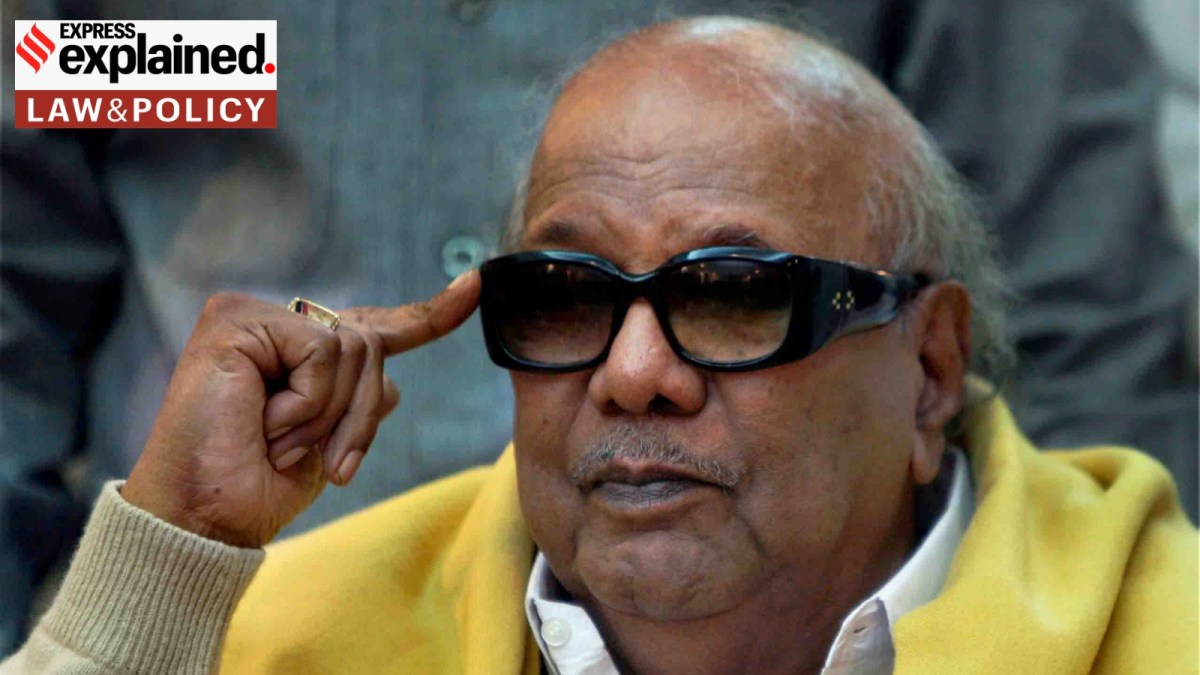Tamil Nadu govt to nationalise Karunanidhi’s works: what does this mean
Under the Copyright Act, 1957, an author has a bundle of legal rights including the right to reproduce, issue copies, perform, adapt, or translate the work in question.

The Tamil Nadu government, last week, announced that the collected works of former Chief Minister M Karunanidhi would be “nationalised” — making them freely available for the public to publish, translate and adapt. Here is how this works.
Copyright laws
Under the Copyright Act, 1957, an author has a bundle of legal rights including the right to reproduce, issue copies, perform, adapt, or translate the work in question. Upon the death of the author, the ownership of the copyright falls to her legal heirs.
Section 18 of the Act allows a copyright owner to “assign” the copyright “wholly or partially” to anyone she pleases, in return for compensation. A copyright for any literary, dramatic, musical or artistic work remains in place until sixty years after the original author’s death. After this, the work enters the “public domain”, meaning can be used freely without permission from the former copyright owners.
Nationalisation of copyright
In 2001, the government of Tamil Nadu established the Tamil Virtual Academy (TVA) to provide online education in the Tamil language. The TVA has a scheme in which it collaborates with legal heirs of original copyrights to make them assign the rights to specific works to the state government.
According to the TVA, all books nationalised by the Tamil Nadu government would be released in the public domain under a CC0 1.0 Universal Public Domain Dedication license. According to the creative commons website, this means “You can copy, modify, distribute and perform the work, even for commercial purposes, all without asking permission”.
The Tamil Nadu government has, till date, nationalised the works of 179 Tamil scholars, and has paid Rs 14.42 crore in royalties to their heirs, the government said. Tamil poet Subramania Bharati’s works were the first Indian literary works to be nationalised in 1949, Professor A R Venkatachalapathy wrote in Who Wrote That Song (2018).
Case of Ambedkar’s works
Prakash Ambedkar, the grandson of Dr B R Ambedkar, granted the copyright for Ambedkar’s works to the Maharashtra government in the 1960s. In 1976, the state government established the Dr Babasaheb Ambedkar Source Material Publication Committee which published the first volume of Dr Ambedkar’s works in 1979. As of today, 23 volumes containing the collected works of Dr Ambedkar are available in the public domain.
In 2016, these collected works ran into controversy when Prakash Ambedkar refused to give permission for republishing these works to the Centre. He claimed that the copyright had not lapsed as the first volume of Dr Ambedkar’s works was only published in 1979. The Centre countered saying that since 60 years had passed since Dr Ambedkar’s death, the copyright had indeed lapsed. The Centre published Dr Ambedkar’s works in 2018, ignoring his grandson’s claims.